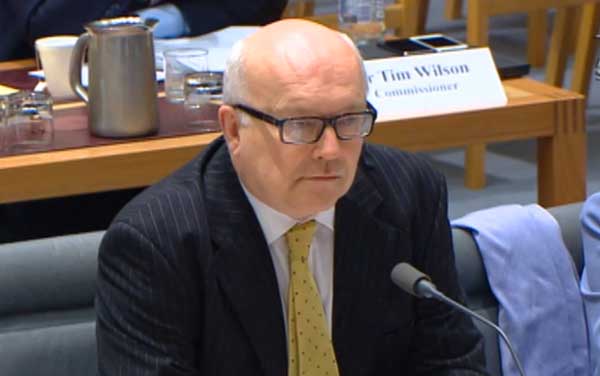The Abbott Government has refused to make public any of the 5,000-plus submissions it has received which argue for or against controversial proposed changes to free speech laws.
The government is even refusing to reveal what percentage of submissions opposed a watering down of racial discrimination protections, and what percentage supported them.
It follows a call by the Commonwealth Attorney General George Brandis earlier this year for public comment on proposed changes to section 18c of the Racial Discrimination Act (RDA).
Currently, it’s an offence in Australia to do anything which ‘offends, insults, humiliates or intimidates another person or a group of people on the basis of their race, colour or national or ethnic origin’.
Those restrictions are balanced by section 18d, which allow public commentary provided it is ‘reasonably’ and in ‘good faith’.
The Abbott Government wants to water the laws down by removing the words “offend, insult and humiliate”, replacing them instead with “vilify”. Lawyer Steven Lewis told The Australian recently the changes would make it much harder to prevent hate-speech.
Brandis’ move to amend the legislation followed a prominent Federal Court case in 2011, when right-wing columnist Andrew Bolt was found to have racially vilified nine Aboriginal people after writing a series of columns in 2009 alleging they were only identifying as black for financial gain.
Bolt lost the case because the Court found his articles, which were littered with factual errors, were not reasonable nor written in good faith, thus the protections afforded in section 18d were not available to him.
Prior to the federal election, then Opposition leader Tony Abbott promised if elected, his party would change the laws. In office, a public call for submissions on the proposed changes sparked a massive response, with 5,557 received.
But the Attorney General Department’s website still has not published a single one, and Brandis told a Senate Estimates hearing recently none of them would be.

Following a question by Greens Senator Penny Wright asking why, Brandis replied: “They will not be published because [the submissions]were invited on the explicit terms that they were submissions to government that would be treated in confidence.”
The AG’s website tells a different story, leaving it open to individuals and organisations to determine whether or not their submissions will be published.
A spokesperson for Senator Brandis declined to respond further when the contradictions between his comments in Senate Estimates, and the disclaimer on the Attorney-General’s website, were pointed out.
Senator Wright told New Matilda: “It seems somewhat ironic that this is supposedly a response to issues around free speech and the government isn’t prepared to make the views of Australians known to each other.”
At the same Estimate’s hearing, Brandis refused to be drawn on how many submissions opposed the government’s changes, and how many were for them, simply saying there were “many” on both sides.
A spokesperson for Amnesty International – which made a submission to the Abbott Government on the issue – also called for them to be published.
“It would be very interesting to see the community concerns that this draft bill has brought about, as well as who opposes it and who is for it,” the spokesperson told New Matilda.
“We don’t actually know of many organisations who are for it. We don’t know the number and that’s why the Attorney-General needs to make it public.”
Donate To New Matilda
New Matilda is a small, independent media outlet. We survive through reader contributions, and never losing a lawsuit. If you got something from this article, giving something back helps us to continue speaking truth to power. Every little bit counts.



